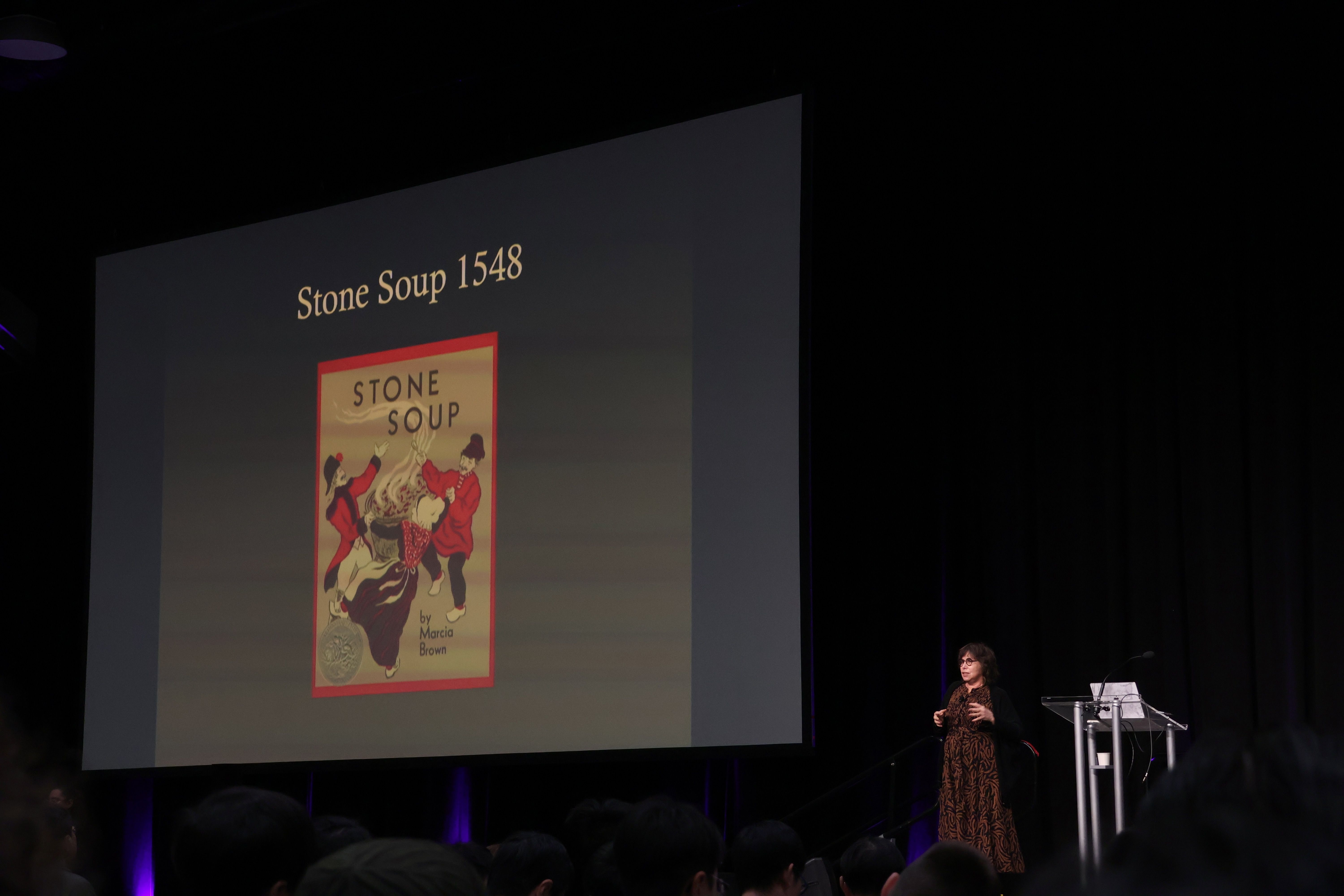Alison Gopnik started her talk, the first of seven invited talks at this year’s conference, with reference to a few classic folk tales and modern science fiction stories.
In the Stone Soup folk tale, strangers in a village proclaim they’re making “stone soup”, and the villagers pitch in with additional ingredients. In the end, the soup is composed of everything but stones.

Gopnik drew a comparison to claims of AGI achieved via gradient descent and next-token-prediction that ignore the contributions of high-quality data, human labelling, prompt engineering, and more.
In fact, Gopnik questioned the concept of “general” intelligence, positing that several aspects of intelligence — exploitation, exploration, and transmission — are in tension with one another, and any instantiation of intelligence makes trade-offs between these aspects.
The talk contrasted AI approaches to development in children, making the case for empowerment-driven learning: maximising mutual information between actions and outcomes, and maximising diversity of actions.
Gopnik’s intrinsic motivation paper at NeurIPS last year examined this by comparing RL agents’ exploration strategies to those of children in an open-ended minecraft environment.